While I love writing articles, I just dread putting together the perfect introduction. I don’t believe in a universal formula that you can apply to make it easier for you to write an effective blog post introduction. However, I assume there are certain things good introductions have in common.
So I’m having a closer look at 100+ article introductions to see if there are any similarities we can learn from:
Here’s a video version of the article:
Getting people to imagine
Oh, the power of imagination. Works like a charm every time for article introductions.






Introducing a common problem for a specific reader segment



Some authors prefer to target niche audiences and make assumptions regarding their interest and problems from the start:
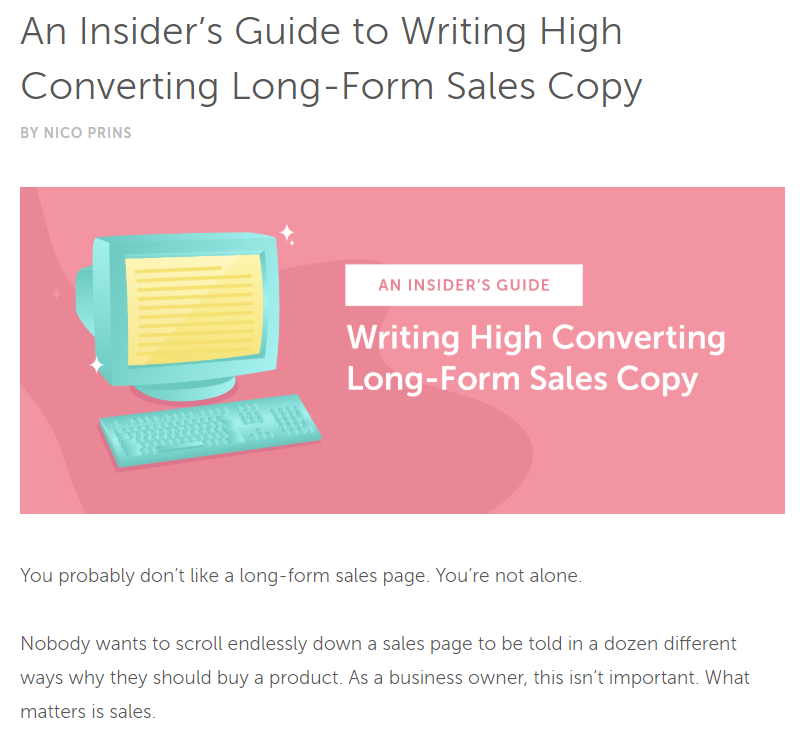

Question in the article introduction






This technique does appear to be overly used because it’s a certain way of helping readers make the connection between the article they’re about to read and their own issues:

Often the question is there just so the article can answer it. So you’re essentially going to read one extra long answer after the article’s introduction:
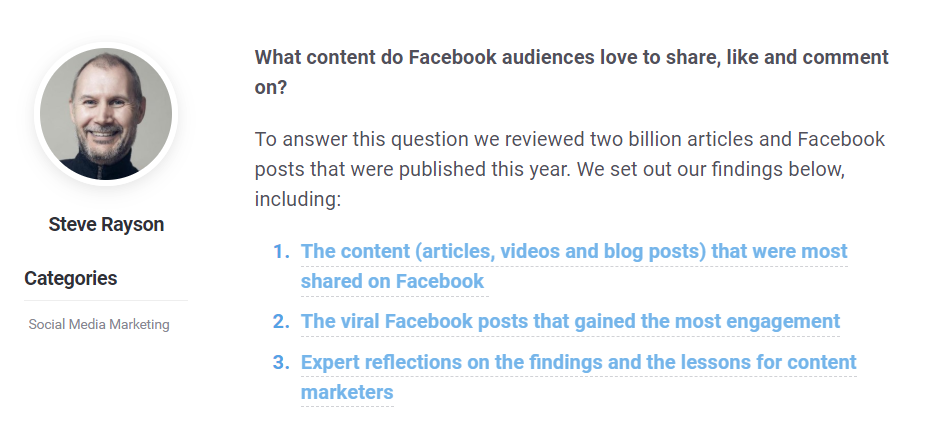
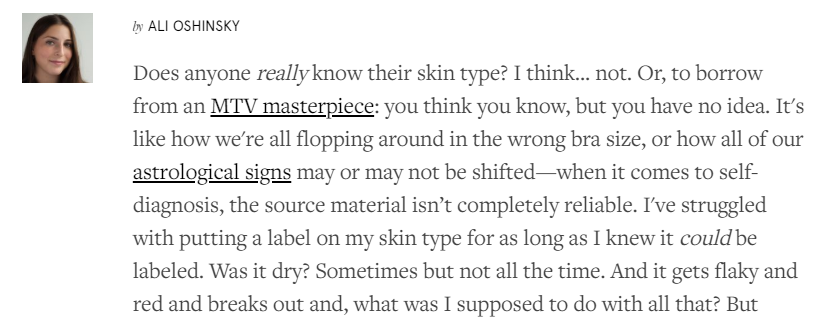

Questions can also be used in article intros to take readers back to a past memory and create a sense of nostalgia:

The general statement as the article’s intro
Just that and used much too often as we’re already expecting a similar into for most articles. Frankly, this type of post introduction doesn’t add much value besides setting the context or introducing one main topic.



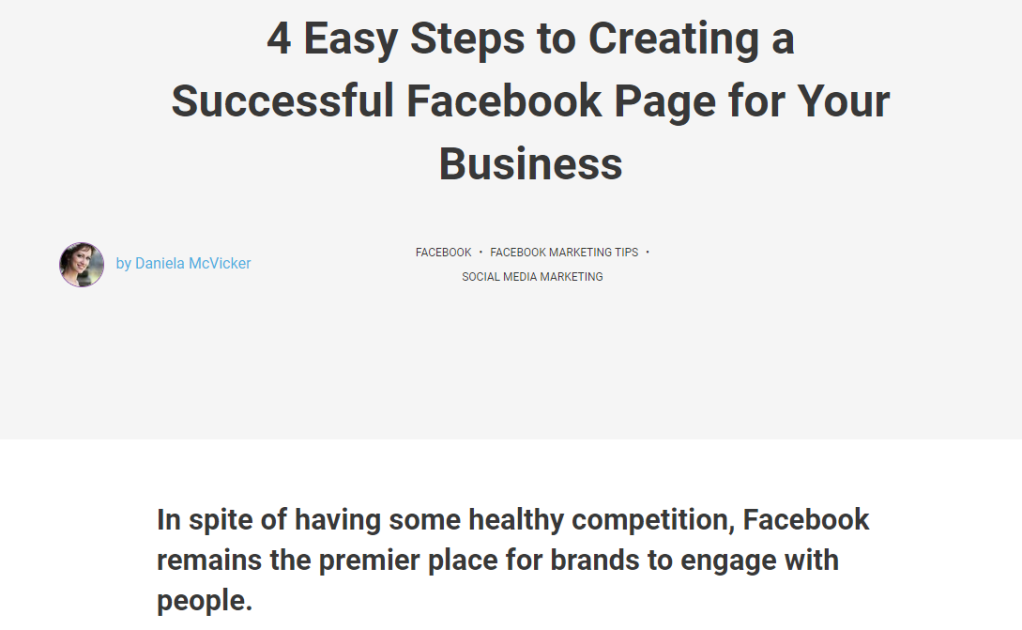




Closely related to the general statement, there’s also the “here’s why you should keep on reading this article” phrase/paragraph where the importance of the topic is highlighted first:


The quote


Here’s a mix of a quote and a question with the aim of making people relate to the quote:

Or perhaps you’d like to explain a quote or mantra by naturally inserting it into the first phrase:

Take advantage of seasons, holidays, news, or recent events


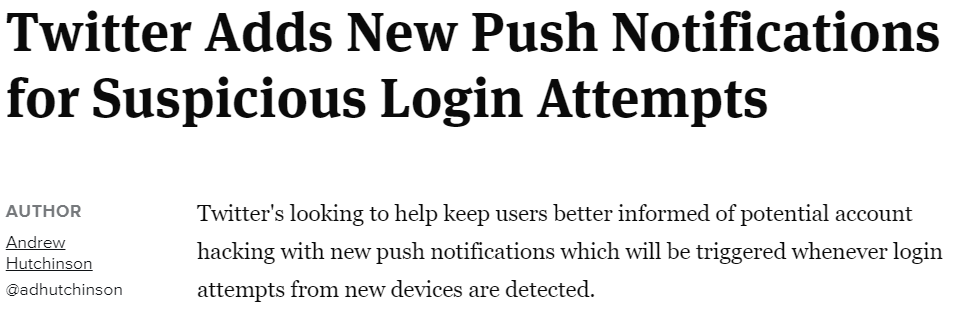



You can also take existing articles that are highly debatable, controversial, or just the ones that launch a new idea to discuss around:

Straight to the point
Skip the fluff and tell or show readers what they’re looking for:

Here are other similar example of article introductions:


The next blog post introduction takes advantage of various possible structures and text formatting you can use to create excitement around a launch or simply add some of your own brand’s personality:

I’ve always been an advocate of using CTAs to their best and consider all conclusions should have one call-to-action at least, but I must admit that adding them to your article’s introduction can also be the right way to go if it leads to your main goal for that specific piece of content:

Giving a definition


Never fail with studies

Statistics work just as fine:


Every time actually.

And you can use the article’s intro to tease the results and make people want to read more like here:

Another way of leveraging stats is by referencing past numbers and creating the expectation of improvement:

Putting the author first




Here’s another article introduction example from Coach the Life Coach:

In this sample, the author is using her past experience to present a problem the reader might have and suggest that further reading the article will provide a solution:

Of course, putting the author first often means bringing your brand or business to the front too:


You’ll also occasionally come across the “here’s what we’re doing” type of posts:

Or you can take the straight-forward way and boldly place what you’re promoting at the start of the article or directly create your blog post around that idea:

Sharing the experience of a brand or company is also highly valued:


Putting the reader first
In other words, repeated use of YOU or situations the reader might be familiar with.

Take a look at this example which puts emphasis on the reader while also getting him/her to imagine an existing or ideal reality:

Here’s a different way to appeal to the reader by making a typical assumption that you know what they’re thinking:




Another introductory paragraph on Newsweek where the transition is slowly being made from the author (first person) to the reader (second person):

The third person
Or the go-to introduction for any interview and podcast.

Success stories are also favorably viewed loved by all kinds of audiences and it’s only natural to start the article by putting the person you’re going to talk about (or talk to) at the beginning:

You’ve seen this in use all too often:



Of course, this technique (although almost a standard so to say) is a bit outdated since we’re so used to seeing this structure, so here’s a different way of approaching the introduction of the person the article is centered around:

Storytelling starts within the introduction


Now this is a story anyone would want to hear:

Making a promise
This is an ever-common way of ensuring you’re getting visitors to keep reading the article and not just move on to another one after reading the first 3 sentences.

Everyone is following this trend:


A mix of promise and question to get brains moving:

Brian Dean takes advantage of this technique to make some pretty strong promises, but in his case, he manages to deliver them fairly accurately. Here are three of those statements as placed in introductions:



The last one also offers readers assurance on the credibility of the author as he writes about things he managed to achieve himself.
And such examples are endless:


Getting readers to think from the article’s intro
In this article introduction example from Scott H. Young, the author involves the reader by giving facts and asking a question that will get them to think and make their own assumptions before they read on:



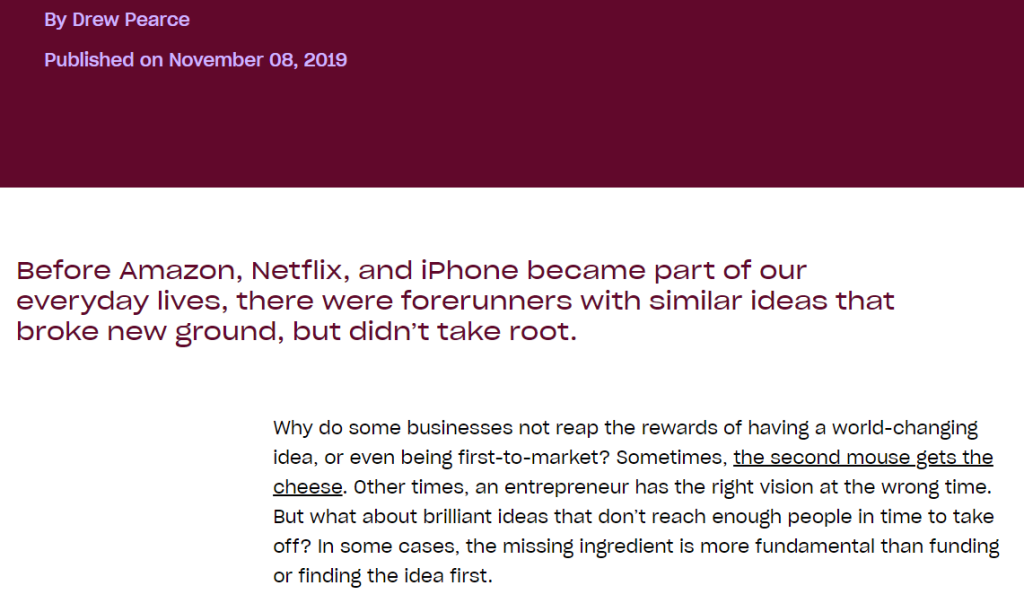


Making structure work for you
Notice how articles on bigger outlets (particularly those that focus on news) tend to have an introductory phrase, similar to a subtitle, which resumes the article or creates the premise for the topic to be discussed:

Here’s another example, this time on Medium:

And another such “introduction” on The Guardian:

Slack also does this with their blog posts, proving it’s not just a technique for the news outlets:

Repeat the title

Simply rephrasing the headline in the post’s introduction is a more natural way of essentially emphasizing the main idea of the article:
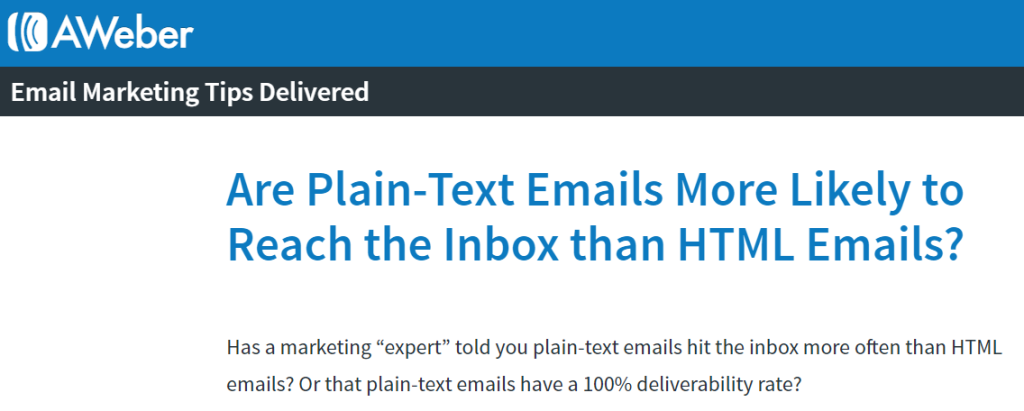
Breaking the article introduction into several short paragraphs
Another trend related to the form of the introduction is separating each sentence in the intro into multiple paragraphs with plenty of white space between them:



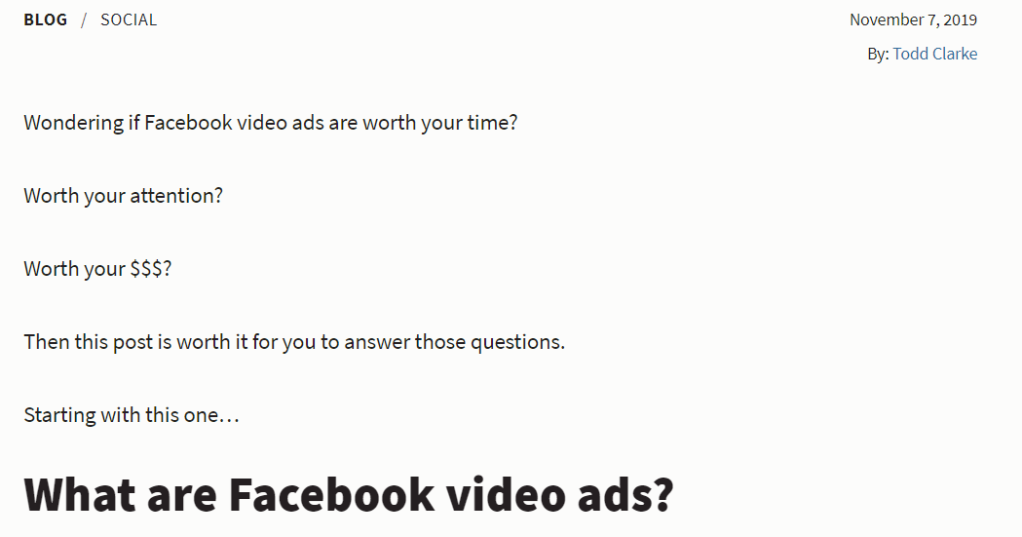
Have any secrets to building a successful article introduction? Feel free to share them!
P.S.: I’m also doing a quick poll to see if people actually read and care about introductions or just skip them. If you have 3 seconds, cast in your vote:

I love it so much
LikeLike